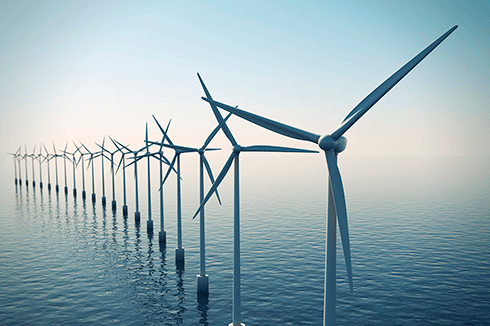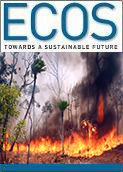
|
Published: 27 October 2014
Wind could supply almost one-third of global energy by 2030
The Global Wind Energy Council (GWEC) and Greenpeace International have released their 2014 Global Wind Energy Outlook, which forecasts that, by 2050, wind power could provide 25–30 per cent of global electricity supply.

|
|
Wind energy installations totalled 318 GW globally by the end of 2013, and the industry is set to grow by another 45 GW in 2014. Credit:
©istock/3dmentat
|
The report also claims that wind power could reach 2000 gigawatts (GW) by 2030, and supply up to 17–19 per cent of global electricity, creating over two million new jobs and reducing CO2 emissions by more than three billion tonnes per year.
It presents three scenarios for the global wind energy industry at 2020, 2030 and up to 2050 in terms of global electricity supply, CO2 emission savings, employment, cost reductions, and investment. The scenarios include the International Energy Agency's central scenario from its World Energy Outlook, and 'Moderate' and 'Advanced' scenarios developed for this report.
‘Wind power has become the least-cost option when adding new capacity to the grid in an increasing number of markets, and prices continue to fall’, said the Steve Sawyer, CEO of GWEC.
‘Given the urgency to cut down CO2 emissions and continued reliance on imported fossil fuels, wind power's pivotal role in the world's future energy supply is assured.’
The power sector is responsible for more than 40 per cent of all carbon dioxide emissions from burning fossil fuels, and about 25 per cent of our total greenhouse gas emissions. If global emissions are to peak and decline in this decade, as the science shows is necessary in order to meet climate protection goals, one focus has to be the power sector.
Wind power's scalability and its speed of deployment enable it to bring about the early emissions reductions required to keep the global mean temperature rise to 2°C or less above pre-industrial levels.
‘By 2020, wind power could prevent more than 1 billion tonnes of carbon dioxide from being emitted each year by dirty energy – equivalent to the emissions of Germany and Italy combined,’ said Sven Teske, Greenpeace senior energy expert.
‘Policymakers need to provide economic incentives, and also leadership if they are to achieve a credible international climate agreement at next year's summit in Paris
Source: GWEC



